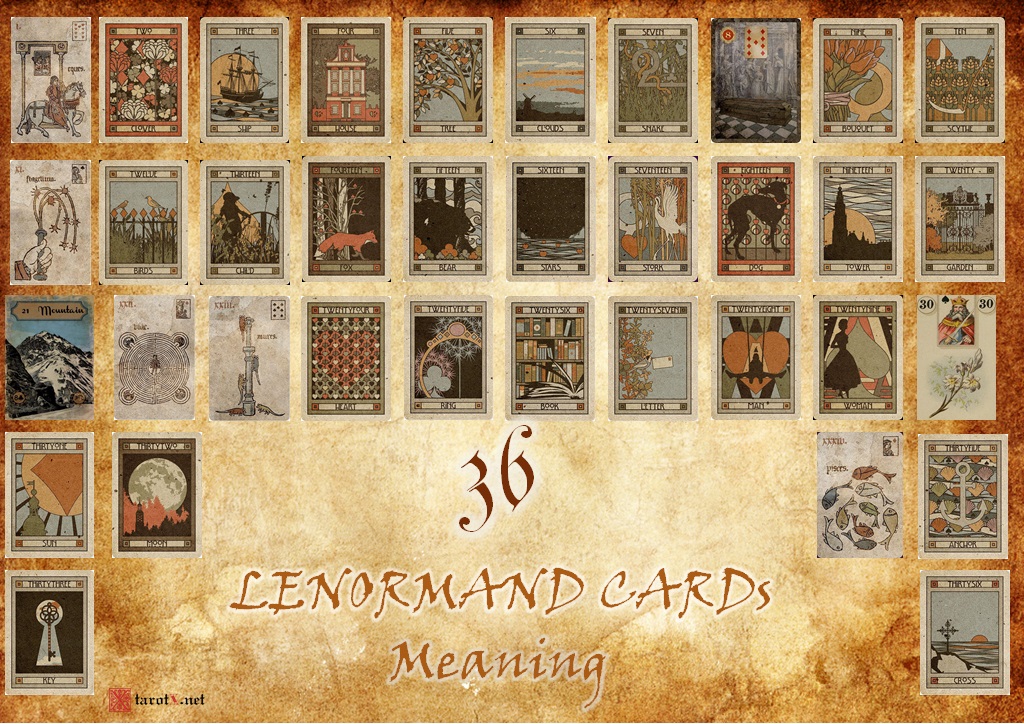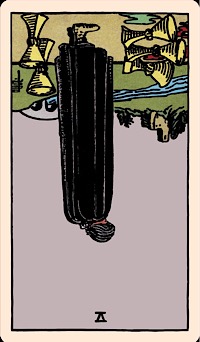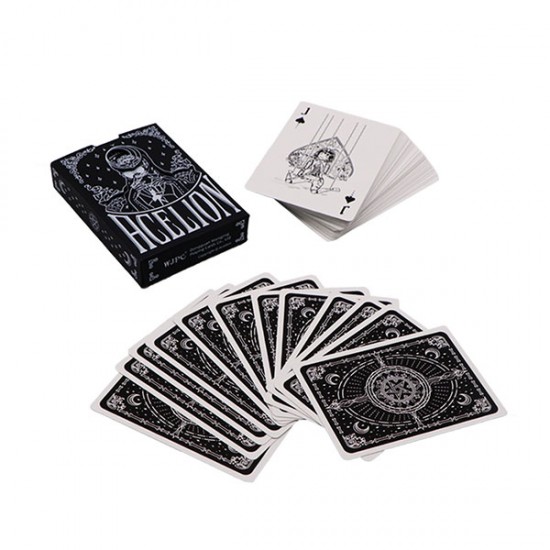
There are several things you need before you start reading tarot. Rose recommends closing your eyes and asking for guidance by your spirit guides when you are shuffled the cards. Meditating can help you tap into your intuition. Taking the time to connect with your inner knowing can help you avoid fear, doubt, and analysis.
Intuition is a key component to reading tarot decks
It can be very powerful to use intuition to read tarot decks. This is a skill that requires practice and not an exact science. There are many ways to increase your intuition and improve your self-awareness. Mindfulness practices can help you become more connected to your own experience.
Try to look at the entire picture when you're trying to interpret a card. By doing so, you can gain insight by blending the card's imagery into a whole story. Intuitive tarot readers can see the whole picture in a card. The traditional keywords for The Empress card include nurturing, abundance, and feminine energy. It can also refer to pregnancy, or the birth of children.

Intuition is usually quiet and subtle. It could be a feeling, a voice or a thought in your head. It can also come as a physical sensation.
Do's and don'ts of intuitive tarot readings
Intuitive Tarot readings can be performed with a few basic rules. The first is not to try to read cards from someone else without their permission. The reason is that your intuition might not be the same as the tarot reader's.
The second tip for intuitive readings: Keep your mind open and your heart free. By keeping a clear mind, you will have more confidence. To develop intuitive reading skills, you must first practice. Meditation is a great practice that can help you connect to your inner knowing.
A Tarot deck is the next step to learning how to use intuition. To get started, choose a card that you are curious about and put it down face-down. Next, ask for help understanding the meaning. Do not try to guess what the meaning is. Instead, focus on where you are. A flash of color or a sound might appear, or you may feel a message coming from your body.

Origin of tarot-cards
Although it is not possible to determine the origin of intuitive tarot card cards, they have been in use for hundreds of years. The cards were used initially as prediction tools and games. The first tarot card was used for mystical purposes in 1785 by Jean-Baptiste Alliette (French occultist). He developed connections between the illustrated cards, astrology and ancient Egyptian lore.
While it is probable that the earliest Tarot decks were based on Roman myths or Egyptian legends, there are many theories regarding their origin. The Mamluks are a tribe that lived in the eastern Mediterranean. This is the most popular theory. However, this theory does not explain the separate suit of 21 trumps. The earliest surviving tarot decks originated in the Italian Renaissance, where they gained popularity with aristocratic courtiers. Triunfi, or tarot decks, were popular in Italy during the 15th century. These cards featured symbols from the Roman empire such as triumphs and were used at carnivals.
Feeling the cards is a great way to interpret intuition tarot. If you feel heavy in your chest, it could be a sign of grief and heartache. Similar to a heavy stomach, it could indicate an energetic state.
FAQ
How can I find a hobby for myself?
You might feel as though you don't have a choice when you first start your quest for a hobby.
You're probably thinking, "I'm not very artistic," or "I'm terrible at sports," or maybe even "I don't know anything."
There is a good chance that you have some experience with hobbies.
It's simply that you haven’t yet realized it.
Take a look around your house. What amount of stuff do you have?
Do you have any toys from the past?
You might have a collection.
You might have always wanted the ability to cook.
Perhaps you just want to pick up the guitar again.
Whatever it may be, you can likely turn it into something.
It is important to recognize that you already have a lot of experience to draw from.
You will find a hobby you love once you have it.
What are observation hobbies?
Observation hobbies allow you to observe others doing the same thing. You might be interested in watching sports, reading, going on holidays, and so forth. You might also enjoy observing other people.
It's great to have observation hobbies because it helps you think creatively. This knowledge will be useful later in your work for others and yourself.
You will discover that learning is easier when you are interested.
You might watch or read about football to learn more. Exhibitions are a great way to learn about photography.
If you like to play music, you can either learn the songs online or get a guitar.
If you love cooking, you can either cook your meals at home or order from a local restaurant.
If you love gardening, you might grow vegetables or flowers.
If you like dancing, you could join a dance class or go out with friends.
If you enjoy painting, you might paint pictures.
If you love writing, you might be interested in writing poems and stories.
Drawing pictures is a great hobby.
You could work as a caretaker or keeper at a zoo if you are passionate about animals.
You could choose to study biology, maths, chemistry, or physics if you are interested in science.
History is something you might enjoy if you read books, watch movies, or listen to podcasts.
If you enjoy traveling, you can travel around the world or just explore your own area.
What are some hobbies that would suit introverts?
Introverts are able to concentrate on one thing at once. They tend to prefer solitary activities such as reading, writing, playing music, watching movies, etc.
They enjoy being alone and spending time alone. They don't enjoy being social all day. They often feel bored when they are surrounded by people.
This is why introverts often choose hobbies that require them to be alone. An introvert might like to read, listen to music, take photographs, paint, write poetry, or even create art.
Some introverts prefer to live alone. They can concentrate on their hobby without being distracted.
What is the cost of a hobby?
Hobby costs nothing except time. If you're serious about it, however, it may take you many years to reach your goals.
However, there is something that can help. It's called "passion". If you have passion about something, it will make it easier for you to work hard.
Once you put in the hours, you might find yourself addicted to the activity. This is when the real fun begins. You are now doing something that you love and getting better every day. So by the end of the year, you will probably have made quite an improvement.
So don't worry too much about how long it takes. You can just try it. You might be surprised by what you find!
Where can I find resources for learning more about hobbies?
There are many websites that help people find new hobbies.
Here are some favorites of ours:
www.trythisathome.com - This site provides a list of over 100 different hobbies. It also includes information on how to get started on each one.
www.hobbyfinders.org - This site offers a database of thousands of activities that you can search by interest, skill level, location, and more.
www.indiebazaar.co.uk - IndieBazaar is an online marketplace designed specifically for independent artists and musicians. The site sells hundreds of items, including artwork and music gear.
www.pinterest.com/explore/hobbies - Pinterest is a social media network that lets users "pin" images they find interesting onto their boards. Boards allow users to organize things they like into specific categories.
www.reddit.com /r/Hobbies - Reddit is another social media platform that lets users post links to articles, videos, or other types of content. Users can vote on which posts they think are most valuable.
Statistics
- Almost 80% of people claim to have no hobby. (hobbylark.com)
- The intensity of the dialogue partners' bond at the end of the forty-five-minute vulnerability interaction was rated as closer than the closest relationship in the lives of 30 percent of similar students. (time.com)
- I am 100% biologically a woman (discover.hubpages.com)
- In comparison, men in the “no humor” condition were refused 84.6% of the time and were only accepted 15.4% of the time. (time.com)
- A new survey by Pew Research Center of teens ages 13 to 17 finds that 36% of girls feel tense or nervous about their day every day; 23% of boys say the same. (pewresearch.org)
External Links
How To
How to begin gardening
Gardening is one the oldest forms. It requires persistence, patience, and determination. The first step to starting a garden is to pick a spot where you will grow food. You can choose to have a large area or a small one in your backyard. Next, pick the type of plants that you would like. Do you prefer vegetables, or flowers? Some people enjoy growing herbs while others love raising livestock such as rabbits. Before you decide on what type of crops to plant you need to take into consideration how much space you have. If your climate is cold, you may decide to plant berries and fruits.
Once you have selected the plants you wish to plant, you should prepare your soil. Your plants' success or failure will depend on the soil they are placed in. The soil should be rich in organic matter to provide nutrients for your plants' roots. Organic matter includes organic matter such as leaves, twigs or grass clippings. You need nutrients to your soil after you have prepared it. Depending on the type of plants you plan to grow, you may need different amounts of nitrogen, phosphorus, potassium, calcium, magnesium, boron, zinc, copper, manganese, iron, molybdenum, chlorine, sulfur, sodium, and so on. An online fertilizer calculator can help you calculate these values. Many fertilizers are available, so make sure you know what you are buying.
Now, wait for your seeds to germinate after you have prepared your soil and added the necessary nutrients. This can take anywhere from two weeks to three months depending on where you live and how warm it is. After your seeds sprout, it is important to water them frequently. Watering your plants too little or too often can cause problems. Avoid overwatering your plants. Overwatering can result in root rot, fungal diseases, and even death. Consider that plants generally need less water in the warmer months than they do in winter. Keep in mind that certain plants may need to be dried after being watered. Tomatoes for instance need to remain slightly moist, but not wet. Soggy soil is not good for them. After the plants have finished flowering they must go dormant. Plants go dormant when they stop producing new growth and instead store energy for next year's harvest. Dormancy is when the plant stops sending signals back to its roots for food production. Throughout this period, the plant stores energy. However, the plant will die if temperatures drop below freezing or there is insufficient sunlight.
Urban areas can limit your choices for plants. Concrete sidewalks, roads, buildings and parking lots are all common in urban areas. These blocks block sunlight from reaching ground level. Concrete absorbs light which blocks sunlight from reaching the ground below. Many plants are unable to survive in urban areas due to the lack of sunlight. There are still plants that thrive in urban environments. Many perennials, trees, and shrubs are able to adapt to urban living. Many annuals can be grown indoors, too, in containers. You can have fresh greenery all year round with container gardens.
Now you're ready to plant.